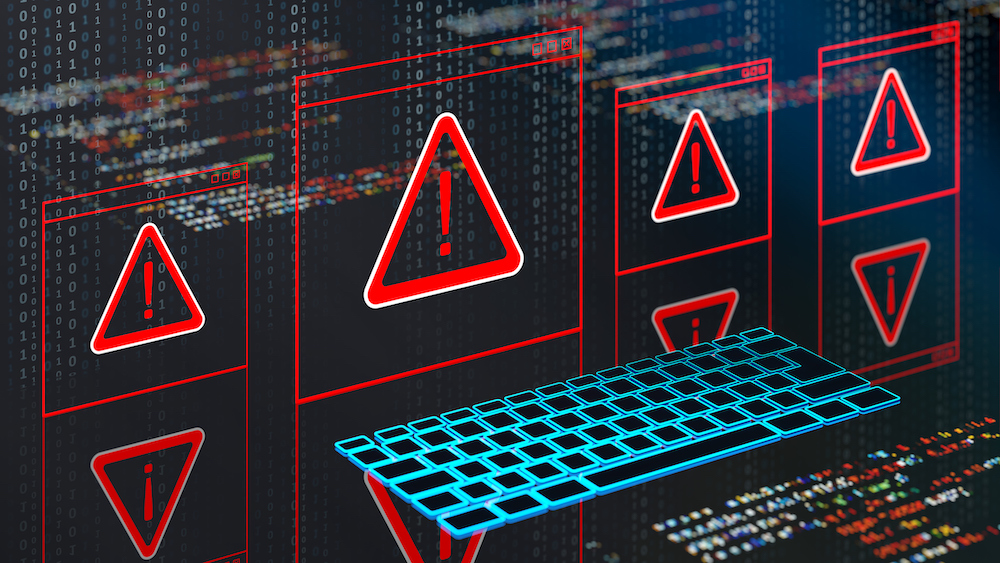Public records systems that courts and governments rely on to manage voter registrations and legal filings have been riddled with vulnerabilities that made it possible for attackers to falsify registration databases and add, delete, or modify official documents.
Over the past year, software developer turned security researcher Jason Parker has found and reported dozens of critical vulnerabilities in no fewer than 19 commercial platforms used by hundreds of courts, government agencies, and police departments across the country. Most of the vulnerabilities were critical.
One flaw he uncovered in the voter registration cancellation portal for the state of Georgia, for instance, allowed anyone visiting it to cancel the registration of any voter in that state when the visitor knew the name, birthdate, and county of residence of the voter. In another case, document management systems used in local courthouses across the country contained multiple flaws that allowed unauthorized people to access sensitive filings such as psychiatric evaluations that were under seal. And in one case, unauthorized people could assign themselves privileges that are supposed to be available only to clerks of the court and, from there, create, delete, or modify filings.
Failing at the most fundamental level
It’s hard to overstate the critical role these systems play in the administration of justice, voting rights, and other integral government functions. The number of vulnerabilities—mostly stemming from weak permission controls, poor validation of user inputs, and faulty authentication processes—demonstrate a lack of due care in ensuring the trustworthiness of the systems millions of citizens rely on every day.




 Loading comments...
Loading comments...

Aspirational at best. I'd love to see the governments in the US actually (not just lip service) buckle down and solve the severe threat current IT systems pose to our national security and privacy because they're actually intertwined concepts. You can't have one without the other.
But, court staffs are filled with people that can barely turn on computers, let alone understand the implications of their actions. They can't, and in many cases won't, think through things to their logical ends. Politicians that create and fund the mandates are no better, and in both cases theoretical ideological ends often override reality.
The vendors have no incentives to improve this system. There metrics are to minimize the number of support calls over the lifetime of their deployments. This disincentivizes changes to methods of access and utilization while incentivizing "common sense" - which is anything BUT common nor sensible in these cases - loop holes to security policies and enforcement.
Then the clusterfuck began. Two systems had to authenticate, one of them was the case preparation software, and the other was to the courthouse, through a third party access portal called PACER.
Yes, you could log into the courthouse directly, but the program wouldn't let you auto-file the case, which saves like an hour and a half worth of nonsense. CASES were limited to about 10 MB (most are black and white PDF's, but it's very easy to exceed 10 MB for a complicated case), which threw errors and stuff that shouldn't have been there. And this is up until about 2022, when he finally retired.
For the record, this did not substantively change from the first time I was introduced to the program about 20 years previously. The procedures were the same, constant changing of passwords, constant requirements for "complicated passwords", and a host of other things. And the connection seemed to be set at 56K, which suggested to me that it had its origins during the dial up period. Faxing was still very, VERY common.
The point being, the court system filing and access appears to have been progressively built upon the rotting corpses of what came before, without the bother of clearing away the corpses.
I made a LOT of money troubleshooting the fucking thing, making it ten times harder to just do anything, but somehow not making it ten times more expensive, too. Except when you get paid by the hour and spend a couple of them on hold with tech support. Then it gets expensive.
So that they have vulnerabilities riddled throughout that system surprises me NOT AT ALL. It always seemed like a security protocol that was conceived sometime before I was born, made more complicated by budget and regulatory constraints across multiple entities and jurisdictions.
I mean, people say the wheels of justice grind slowly, but I it appears to be that the system has square wheels to start with. It makes for a very slow, and very bumpy ride.
I'm really glad I'm not fucking around with that thing anymore. And I feel sincere pity for those unfortunate souls who are.